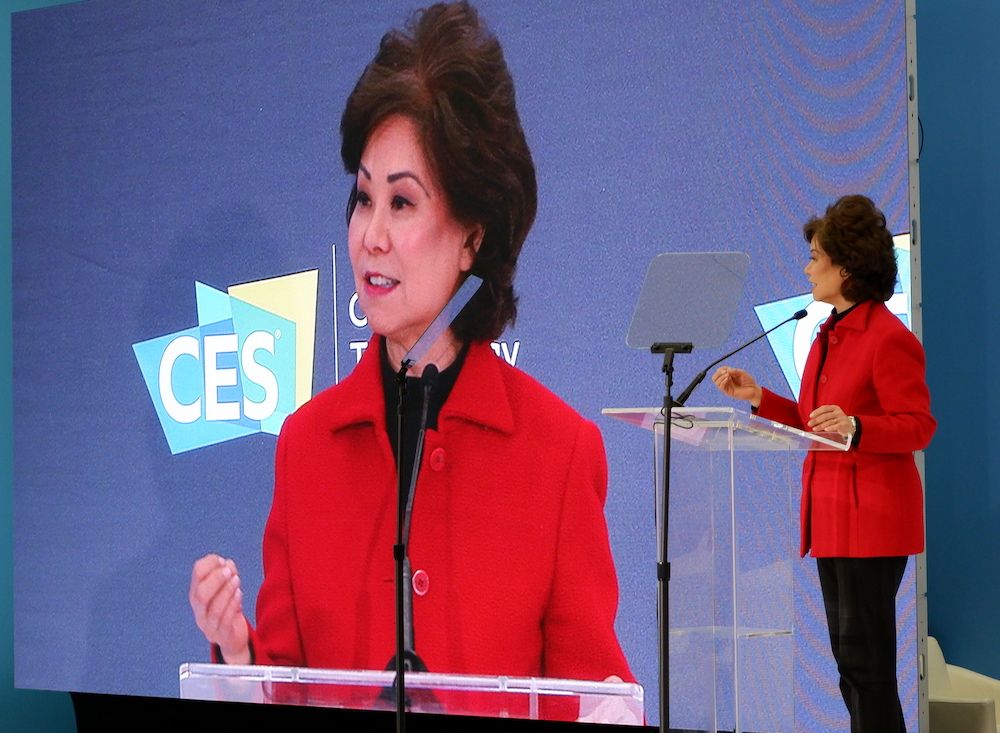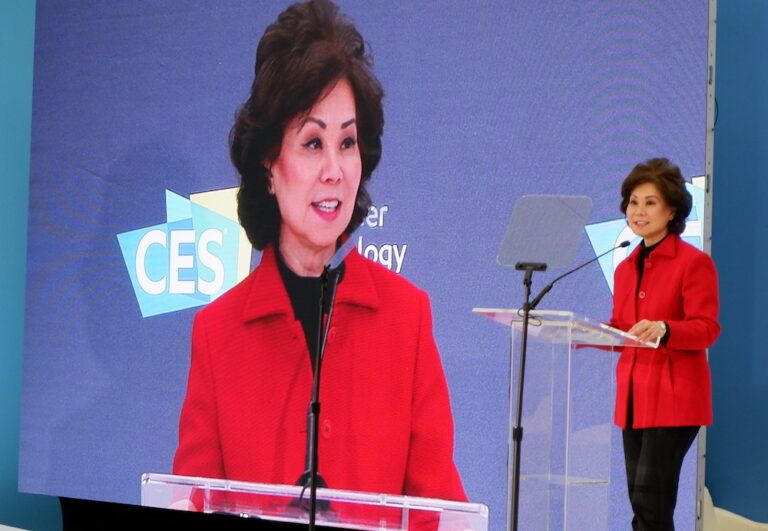The Consumer Electronics Show (CES) in Las Vegas this week (January 7-10) served as a platform for US Transportation Secretary Elaine Chao to launch the USDOT’s new guidance document on the roll out of autonomous vehicles – AV 4.0.
Chao’s keynote address at the hugely popular trade event, which is expected to attract nearly 200,000 visitors this year, set out the USDOT’s ongoing commitment to promoting new technology, with particular focus on AVs.
AV 4.0 builds upon previously released voluntary guidelines released by the USDOT in 2017 and 2018, which were entitled, Automated Driving Systems 2.0 and AV 3.0.
“Today, I am pleased to announce the release of AV 4.0,” said Chao “Ensuring American leadership and automated vehicle technology, AV 4.0 is a joint White House and US Department of Transportation initiative. And the takeaway from AV 4.0 is that the federal government is all in for safer, better and more inclusive transportation, aided by automated driving systems.
“AV 4.0 unifies AV efforts across 38 different federal agencies and departments… and independent agencies… and commissions… and the Executive Office of the President, you get the drift. This document and set of guidelines recognises the value of private sector leadership in AV research, development and integration. This kind of innovation requires appropriate government oversight to ensure safety in open markets, strategic allocation of public resources and of course, protection of the public interest.”

“Realising the vast potential of a AVs will require collaboration and information sharing among industry partners, state and local governments, academia, nonprofits, standards, development organisations, and of course, the 38 different federal government agencies, so AV 4.0 will inform this collaborative effort in automated vehicles for all stakeholders and outlines federal government efforts to address areas of concern.”
The document contains three principles. First and foremost it will look to protect users and communities, particularly with regards to safety, cybersecurity, addressing public concerns about mobility and privacy. Secondly AV 4.0 seeks to promote efficient markets. “It should not be the role of the federal government to pick winners or losers,” said Chao. “We will remain technology neutral but also protect American innovation and creativity by protecting intellectual property and modernising regulations. Regulations are needed, but when they become obsolete, irrelevant, outdated, they need to be changed.”
Thirdly AV 4.0 states that AVs must improve transportation systems overall. “AVs need to improve safety, security and the quality of life for all Americans,” said Chao. “That’s the barometer for success. And that will be the result of these and other transportation initiatives and innovations currently underway.”





